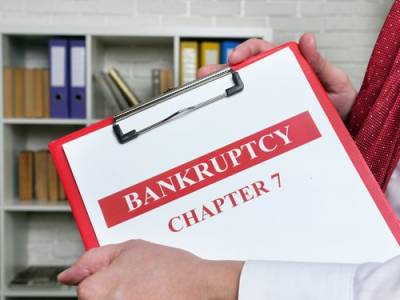How Are Unsecured Debts Handled in Chapter 7 Bankruptcy Cases?

If you are considering bankruptcy, you may have multiple different types of debts, and it is important to know how these debts will be handled during your case. Specifically, if you are planning to file for Chapter 7 bankruptcy, you will want to understand how your unsecured debts will be addressed. This can ensure that you will be able to eliminate your debts successfully and achieve a fresh financial start.
What Are Unsecured Debts?
A debt is considered to be unsecured if it is not backed by collateral. That is, rather than having the assurance that they can take possession of property such as a car or home, a creditor will rely on the promise that the amount owed will be repaid. The most common types of unsecured debts include medical bills, credit cards, payday loans, utility bills, and personal loans. These debts do not have an asset attached to them that can be repossessed and sold off if the debt goes unpaid; instead, creditors may take legal action against you if you fail to make payments on your unsecured debt, and they may attempt to recover the amount owed through a judgment in court.
How Are Unsecured Debts Handled in Chapter 7 Bankruptcy Cases?
In Chapter 7 bankruptcies, most unsecured debts are discharged, meaning that they no longer need to be paid back. Not all types of unsecured debts can be discharged through a Chapter 7 bankruptcy; some may require repayment plans or other types of agreements with creditors. This is why it is so important to understand the specifics of your situation before filing for bankruptcy. A bankruptcy attorney can work with you to identify the different types of debts, ensure that all unsecured debts are listed properly, and take the correct steps to receive a discharge.
When filing for Chapter 7 bankruptcy, you must provide the court with a list of all your assets and liabilities (debts). You will also need to demonstrate that you qualify for Chapter 7 by passing the means test. If your income is below the median income in your state for the number of people in your household, you will generally pass the means test. If your income is above the median income, you may still qualify for Chapter 7 if you can show that applying your disposable income toward the debts you owe over a period of five years would result in 25 percent or less of the debts being repaid.
The court will then use the information you provide in your bankruptcy petition to determine which debts should be discharged and which should remain active. The court will also determine which assets can and cannot be liquidated in order to satisfy creditors who may have outstanding claims against you. A number of exemptions will apply, and in many cases, debtors are able to complete "no-asset" bankruptcies in which they will not be required to turn over any assets to be liquidated.
During your case, creditors will be notified and given the opportunity to object to the discharge of your debts. However, most of the time, creditors will not have a valid reason for objecting, and with the understanding that you will no longer be required to pay back the debts, they will be written off as a loss. The goal of discharging unsecured debts is to give you a fresh start so you can move forward with your life without being weighed down with debt.
Contact Our Parker County Chapter 7 Bankruptcy Attorneys
Navigating the complexities of filing for bankruptcy can seem daunting—especially when it comes to understanding how different types of debt are handled during this process. When considering whether or not a Chapter 7 bankruptcy is right for you, it is important to understand how debts like credit card bills and medical bills will be addressed during your case. An experienced Arlington bankruptcy lawyer at Acker Warren P.C. can guide you through every step of this process so that you have peace of mind knowing exactly what will happen with each type of debt at issue during your case. To set up your free consultation, contact us today at 817-752-9033.
Sources:
https://www.uscourts.gov/services-forms/bankruptcy/bankruptcy-basics/chapter-7-bankruptcy-basics
https://www.experian.com/blogs/ask-experian/what-is-chapter-7-bankruptcy/
https://www.investopedia.com/terms/c/chapter7.asp









